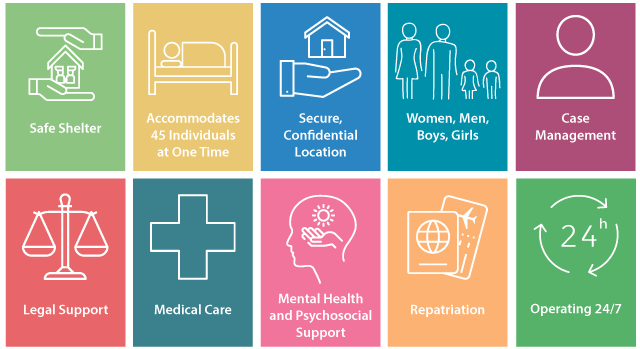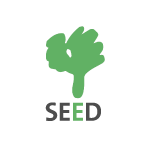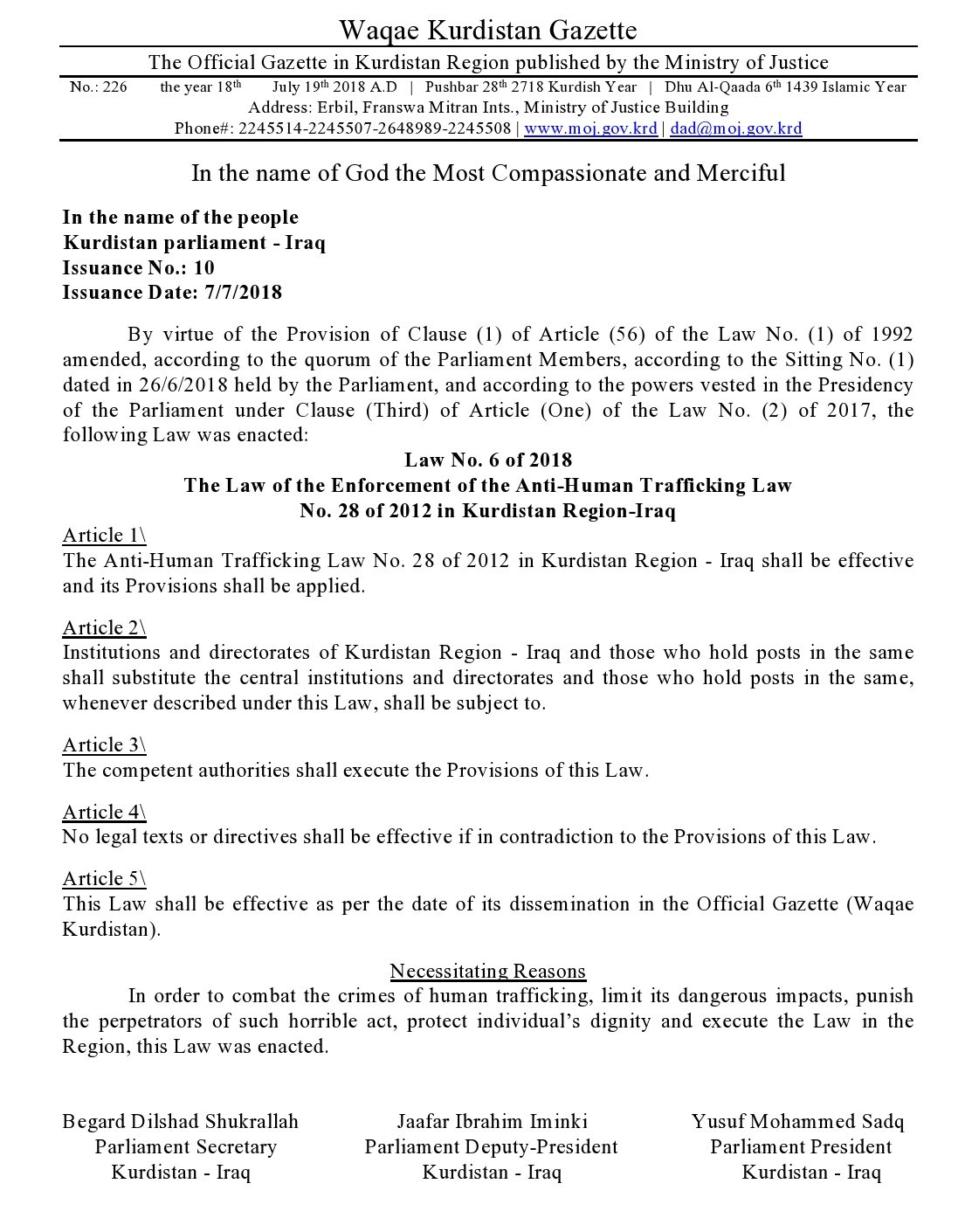One Year Anniversary of the STEPS Center, Shelter for Trafficking Survivors
For people who have experienced trafficking, safe shelter is often the first step towards recovery and stabilization. Until last year, there were no shelters specifically for survivors of trafficking in Iraq or Kurdistan. After the Kurdistan Regional Government (KRG) passed the ‘Anti-Human Trafficking Law No. 6′ in 2018, which provided for the establishment of safe shelter and a Human Trafficking Fund to support survivors in the Kurdistan Region of Iraq (KRI), SEED entered into a partnership with the KRG to establish the first privately licensed shelter for men, women, and children who have experienced human trafficking in Iraq. In November of 2019, the STEPS Center opened its doors for the first time. Despite the COVID-19 outbreak and subsequent lockdown measures, the STEPS Center has provided safe shelter for 70 people from eleven countries including 54 women, 13 men, two boys, and a girl in its first year.

After arriving at the STEPS Center, which now has capacity for up to 45 residents at any one time, each individual is immediately assigned a SEED case manager who sits down and listens to their experiences and works to understand their immediate, short and long-term needs. Together, they develop a client-centered plan to address their needs and help them to meet their desired outcome. Within their first week, they are screened by a SEED psychologist, informed of their legal rights within Kurdistan and have access to holistic services including health care, emotional support, and psychosocial activities. “My desire was to come back home,” Jasmine* told her case manager. As a human trafficking survivor, the 26-year-old experienced 10 months of labor exploitation and abuse from her employer while working in Kurdistan. She stayed in the STEPS Center for a month before safely returning home to Ghana. “I had no problem with any of the staff, especially the case managers who made sure my stay in the shelter was full of activities.” She emphasized the importance of SEED’s case management throughout her process. In addition to Jasmine, SEED helped to repatriate 56 survivors to five countries in the shelter’s first year of operation.

Every Survivor of Trafficking is Unique
Each client’s plan is individually tailored and includes a range of services such as case management, legal counseling and representation, support in obtaining identification or travel documents, cash assistance for repatriation or other financial needs like legal fees, support in mediating labor disputes with employment companies and coping skills and/or mental health and psychosocial support (MHPSS) services to help survivors deal with emotional trauma they may have experienced.
“Looking back, I remain grateful for the assistance provided at the Center. I cannot imagine what would have happened to me if I had remained with my abusive employer for the period of the lockdown,” said Terri* who was repatriated to her native Ghana in August 2020.
While Terri was a survivor of domestic servitude, other survivors who we served over the past year overwhelminglyhad experienced some form of labor exploitation, including forced labor and domestic servitude. A smaller portion of the individuals experienced sexual exploitation and forced marriage. After a reflective pause, Terri pondered, “I wonder if would have even survived to tell the story, if I hadn’t got to the shelter?”
The STEPS Center Built Upon Previous Anti-Trafficking Work
The ‘Anti-Human Trafficking Law No. 6′ adopted by the Kurdistan Region Parliament in 2018 was the first of its kind in the KRI. SEED continues to advocate for further implementation by all law enforcement agencies and the judiciary in relevant cases across Kurdistan. The KRG TIP Police receive specialized training and technical assistance from SEED, on implementation practices such as referral pathways, so that those most in need get access to the shelter. These referral pathways and providing protection through shelter were some of the key recommendations in SEED’s 2019 Trafficking in Persons Report. In its first year the STEPS Center received most of its referrals via the KRG’s Directorate of Anti-Trafficking.
Looking Forward into 2021 and Beyond
Our first year was full of challenges, especially operating under the constraints of COVID-19, but SEED remains fully committed to combating human trafficking in Kurdistan by protecting, empowering and supporting the recovery of survivors of human trafficking. The STEPS Center plays an integral role in seeing that commitment realized. By providing a safe space for survivors to start their individual recovery and stabilization, SEED is supporting men, women and children who have experienced human trafficking in Kurdistan to live with meaning and dignity, on their terms.
SEED is honored to be in a position to provide safe shelter and protection services to individuals who have experienced labor and sexual exploitation in Kurdistan and Iraq. Over the last year, supporting and listening to 70 individuals at the STEPS Center has taught us a lot about what survivors need, and we will continue to listen and respond in a trauma-informed, survivor-centered manner. As we move into 2021, STEPS Center staff look forward to supporting many more individuals find safety, recovery and the opportunity to meaningfully choose their next steps.
SEED is grateful for the generous and continued support of the United States Government for SEED’s anti-trafficking programming. There are also a number of private donations that support this work for which we are thankful. SEED is also fortunate to have recently received a new grant from the Government of the Netherlands, which will support some of our anti-trafficking work in 2021.
*Names and minor details have been changed to protect client confidentiality

